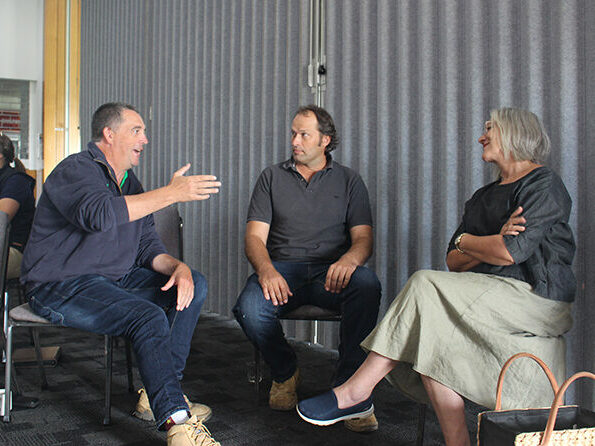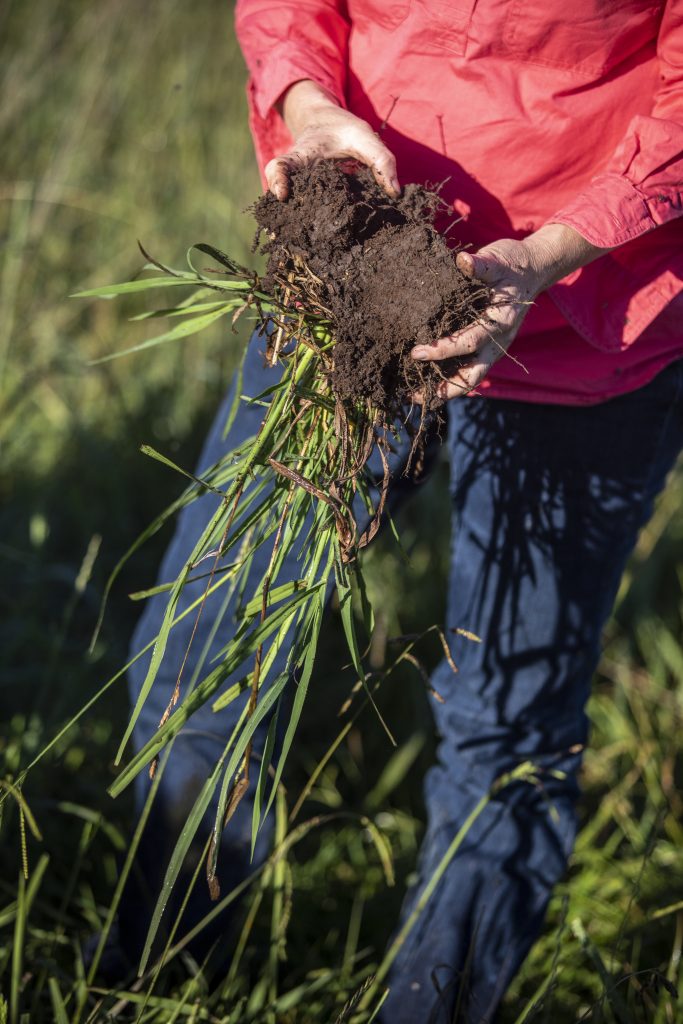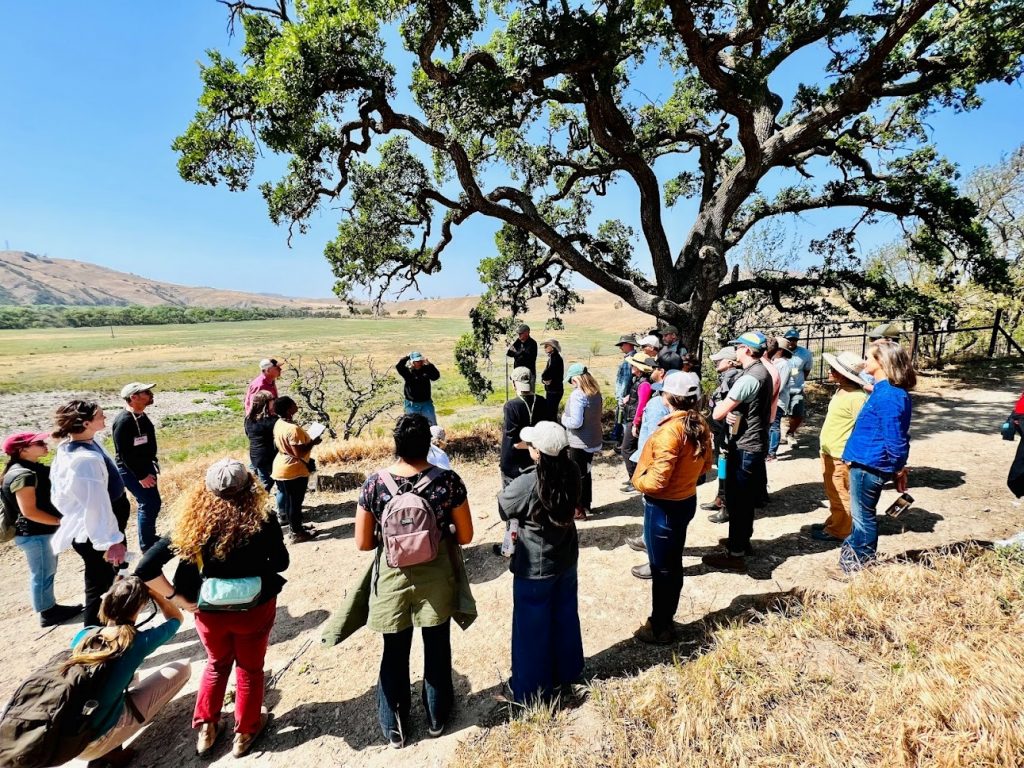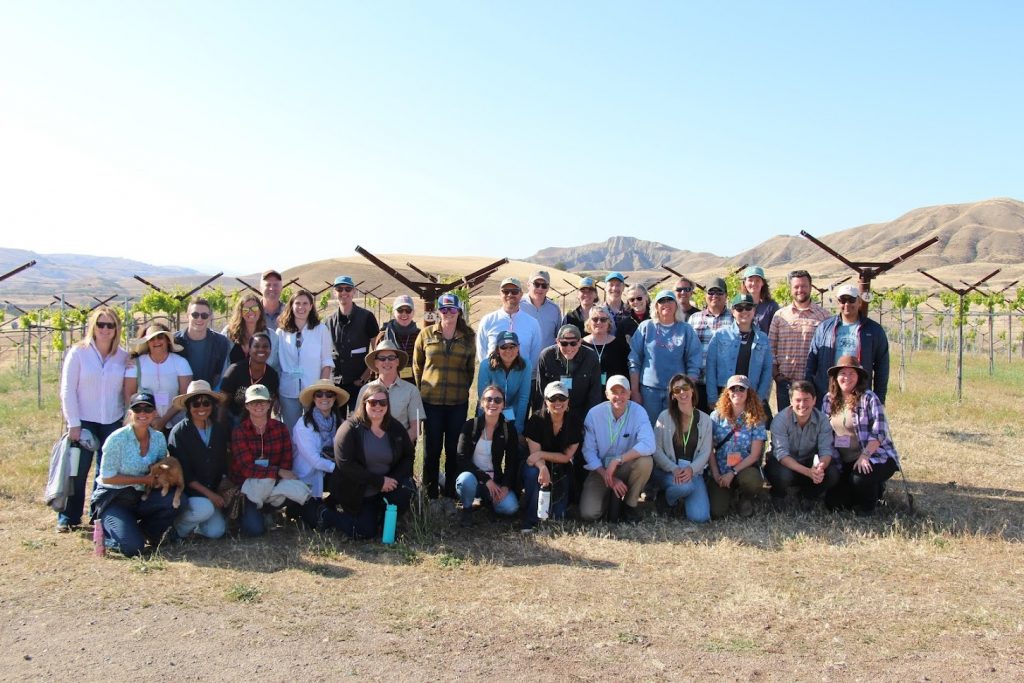Foundation for Rural & Regional Renewal (FRRR)
New partners join FRRR’s In a Good Place program
More funding is now on offer to support mental health projects in remote, rural and regional communities, thanks to new supporters of FRRR’s In a Good Place grants program, with grants of up to $20,000 are now available.

First established in 2018 with the support of CCI Giving, the program’s focus has been on supporting community-driven initiatives that reduce social isolation, increase social participation and connectedness, and increase help-seeking for people within rural, regional and remote communities who are at risk of, or are experiencing, mental health issues.
Now the IAGP program is expanding, adding a stream focussed on farmers and farming communities, following the recent National Farmer Wellbeing Report, which was presented at a recent mental health and wellbeing forum, hosted by National Farmers Federation (NFF).
The Report revealed that in recent years, 45% of Australian farmers have felt depressed, with 64% experiencing anxiety. The causes of this are many-fold, but top among them were weather or natural disasters (47%), financial stress (36%) and inflation and cost pressures (35%). Add to this that 76% of Australian farmers believe that the role they play is undervalued by the Australian public and it’s not hard to understand why farmers and farming communities are experiencing declining mental health.
The Report called for additional funding and support, which prompted six new partners to join FRRR’s IAGP program, alongside CCI Giving – Macdoch Foundation, Jibb Foundation, Morris Family Foundation, Norman Family Foundation and Rebecca Gorman & John Sevior.
These funders have committed to the program for three years, ensuring dedicated funding for farmers and farming communities from 2024-2026. In total, $1,063,000 has been committed over the next three years.
FRRR’s CEO, Natalie Egleton, said that the insights shared by farmers and farmer advocates, reaffirm the relevance of the In a Good Place program, and the role it can play in supporting the wellbeing of farming communities.
“These firsthand experiences and insights, highlight the need for investment in projects that promote preventative and responsive mental health approaches in farming and agriculture-dependent communities.
“Critically, the additional funding will help to address gaps in services by upskilling people locally and bringing in experts, so that locals in farming communities can better support one another.
“Thanks to the generous support of our new partners and CCI Giving, we can build on from the valuable impact that the IAGP program has had on rural Australia over the last six years, by ensuring farming communities can access more funding to develop the community-led, place-based solutions that make sense, locally,” Ms Egleton said.
Jeremy Yipp, Chair of CCI Giving, is also pleased to see the expansion of the program.
“The events of recent years have added complexity to the challenges that remote, rural and regional communities face. But we’ve seen first-hand that by supporting projects that remove barriers to people getting appropriate support, we can make a lasting difference. So it’s wonderful to have more organisations coming on board, enabling FRRR to support even more non-clinical approaches that are community-based and accessible at a grassroots level. It will mean that even more communities can access support,” Mr Yipp said.
Michelle Gortan, CEO of Macdoch Foundation, one of the new partners, said that due to increasingly variable weather conditions, financial and market pressures, and the need to navigate industry and land use transitions, there is a need to ensure farming communities are feeling well-supported.
“Maintaining good mental health and community wellbeing is multi-faceted and a lifelong process that requires a range of different approaches. We recognise that local communities know what will work in their particular context, and as a collective of funders, we are delighted to be partnering with FRRR so that that agricultural communities can design and implement community-led solutions that are fit for purpose.
“FRRR’s special tax status means that as partners, we can respond practically to the issues raised in the National Farmer Wellbeing Report and ensure funding reaches grassroots communities to support improved community wellbeing and mental health, which ultimately helps to create a stronger Australia,” Ms Gortan said.
The expanded program supports a range of approaches that are preventative or responsive in nature, reduce social isolation by increasing social participation and connectedness, and reduce stigma surrounding mental health by encouraging open discussion and supporting self-help-seeking. Communities of less 10,000 will receive priority.
Grants of up to $20,000 are available from a funding pool of at least $290,000. Grants are available via two streams:
- Community wellbeing – focussing on mental health and wellbeing within remote, rural and regional communities;
- Farmers and farming communities – supporting mental health and wellbeing of farmers and the communities they live in.
Applications are via an expression of interest process, with EOIs due 30 April, with final applications for those shortlisted due 15 May. Learn more at: https://frrr.org.au/funding/place/in-a-good-place/.
FRRR would also welcome more partners for this program. Potential supporters should contact partnerships@frrr.org.au or call 03 5430 2399.
Macdoch Foundation is the Australian philanthropic foundation of the MacLeod family, and its vision is to build the resilience of people and the planet. It’s the philanthropic arm of the Macdoch Group, an investment group with Sydney and London offices, which includes Macdoch Ventures (specialising in post-seed capital investment) and Macdoch Agriculture Group (operating businesses and investments that seek to contribute profitably to a low carbon and climate resilient future).
The Macdoch Foundation’s relationship with FRRR is both as a donor and a fundraiser. They hold a Fundraising Account with FRRR enabling them to receive tax-deductible donations towards their Farming for the Future project, while they have also donated to FRRR, most recently to the Flood Appeal to support flood-affected communities in their mid-long term recovery and disaster preparedness.
We caught up with the CEO of Macdoch Foundation, Michelle Gortan. Michelle was previously a partner and the Head of Philanthropy at Mutual Trust, Australia’s premier multi-family office, and prior to that, a philanthropy advisor and foundation manager at the Myer Family Company in Sydney.


Can you tell us a little bit about the Macdoch Foundation and its background?
Macdoch Group is a family office with offices in London and Sydney. It houses an entity that owns some cattle operations, an ag-tech business and is a passive investor in climate related funds and advisory firms. Macdoch Foundation is a family foundation and was established by Prue Murdoch and Alasdair MacLeod in 2019. Prue also chairs her own Foundation in the UK, which is focused on youth mental health. Alisdair chairs the Macdoch Foundation, which is his vehicle for mobilising philanthropic (or risk) capital into his passion areas, which he also feels are very under-served: agriculture, climate change and rural and regional communities.
The Foundation’s purpose is to build resilience of people on the planet, and we do that in three areas – the restoration of productive landscapes and natural landscapes; climate change solutions; and regional and rural mental health and wellbeing. It’s a relatively new Foundation, but Alasdair has been involved in agriculture for more than ten years. He’s a person who really brings his ‘whole self’ to work – and when he had the opportunity to establish a relatively large Foundation, it was very clear what those fields of action would be.
What is the aim of the Farming for the Future project, and what are your hopes and dreams for this project?
It’s early days for this project, and it’s a very sizable, three to five year project that has a number of goals. We always thought FRRR would be the ideal philanthropic partner, and grassroots partner, for this program.
One of the things that we both share as organisations is a deep commitment to thriving regional and rural communities, but very much through an economic lens. And I think we’ve all been in philanthropy for long enough to know that actually, what transforms people’s lives is meaningful employment, and the ability to generate income and make decisions, to be empowered to participate in the economy.

So, this project really emerged from a growing concern that we had around agriculture, as a community, facing these burning platforms of climate change, and growing macro-economic pressures coming from the financial services sector and trading partners as we as a nation start to head into a low carbon future.
A lot of philanthropy and efforts have been heavily focused, and rightly so, on energy transition and trying to reduce our reliance on fossil fuels. But we really feel that the next frontier, and the next economic sector that we need to turn our minds to – and work for – is agriculture and our producers. Our producers are at the coalface of climate change. Their livelihoods depend on it, their families depend on it, regional and rural communities depend on it – and those of us outside of those communities depend on it for our food and fibre, and we depend on them to manage our landscapes. So, we very quickly need to mobilise pathways to help prepare the sector for changing conditions.
Farming for the Future was developed with that as a backdrop. More than 51% of our landscapes are in the care of our farmers, and if we are interested in restoring our landscapes, reversing biodiversity loss and reducing emissions, and optimising our carbon sequestration opportunities, we need to work and invest in our productive landscapes and the producers who manage them.
It’s private land, and they are the eco workers managing them. But to pull through those really powerful and important public benefits, we need to make the business case for them to do that; they’re running businesses, and those communities are dependent on those businesses. This project is about discovering how to make the economic business case for farmers to invest in the natural resources on their farms because it will deliver private and personal benefits to them and their business. We’re hoping that the research will show that investments in nature on farm businesses will deliver more profitable, more climate resilient and more sustainable farming businesses – farming families and communities that can stay on the farm. So, it’s a very particular theory of change.
We know that producers have a variety of goals that they want to achieve, and they’re not all profit related. This large-scale research project is trying to understand the relationship between natural resources on a farm and the farm business goals, which might be profitability, wellbeing, animal welfare, increased levels of biodiversity, less variability in production, and less risk embedded in that business.
And if we can help producers meet those goals, by investing in nature, we think that we can then pull through the enormous public benefits.
Until now, we’ve been asking farmers to invest in nature completely at a cost to them, and that’s not a sustainable way of doing it, certainly not at scale. If we’re looking to engage a critical mass of producers, we have to say, what’s in it for the farmer? Because our hypothesis is that what’s in it for the farmer will also be in it for the Australian community.
We know that we need to show the private benefit to pull through the public benefit.
Macdoch Foundation recently contributed to FRRR’s Flood Appeal. What was it about FRRR’s approach to disaster recovery and resilience that that you made you choose to give to this appeal?
I have a had a relationship with FRRR over many years, prior to running the Macdoch Foundation, and I have always been deeply impressed by its deep commitment to regional communities. When we made the decision at the board level to do something in response to the floods on the NSW North Coast and southern Queensland, we were interested in getting the funds out efficiently and in a way that would be deployed by the community at their discretion. I knew from my dealings with FRRR that that is precisely how they work. FRRR sits alongside communities and within community, it doesn’t dictate to communities how things should happen. They are very much there as a trusted partner and enabler. I knew FRRR would deliver and would do it in a way that respected the agency that communities need to have in these times of disaster.
What do you think some of the biggest barriers are to enabling rural communities to make step changes in response to the risks of a changing climate?
I think clear pathways, information and the capacity building that needs to accompany a transition are the missing links. Our focus on is on agriculture, and we know that we can’t just keep asking producers to wear all the risk and the challenges on their own – we need to work with the system to demonstrate ways to support producers. I think more communities want to be included in conversations about a low carbon economy and excluding them or shielding them from that discussion hasn’t been particularly helpful because the truth is, they need to be in the driving seat around understanding what they need to better prepare and to shift. It’s imperative that we swiftly turn our minds to supporting this sector if we want regional communities to do more than just survive.
We’ve started working with an organisation called ClimateOutreach, which is about working with communities, particularly those that are under-served, around climate change helping communities embrace the climate change issue in the same way that they value health or education. Climate change is not just a political issue. It’s a community issue. It’s an Australian issue. And we need to embrace it in the same way that we do those other values. The polarisation around climate change – the politicisation of climate change – hasn’t been being helpful for regional communities. We are really interested in kind of shifting that. I think the longer that we kick the issue of how we’re going to support regional communities in the face of climate change down the road, the slower we will be in developing meaningful pathways to help them prepare.
Can you tell us about any of Macdoch Foundation’s other partnerships?
We fund a really fantastic Indigenous land enterprise in WA called the Noongar Land Enterprise Group – that’s a grant we’re very proud of and a team that we’re very proud of, and we hope that that’s going to set the benchmark for a lot of work that we’d like to do around Indigenous land management, bringing to the fore excellence in Indigenous thinking as our first land stewards – expert Australian land managers that have been around for 60,000 years!
We’ve funded an organisation called Accounting for Nature, which is a certification program for producers who are delivering verifiable environmental outcomes on their farm. We’ve funded a number of family refuges and family counselling organisations, particularly through COVID. One of those is the women and girls’ emergency centre, as an example. We also funded a program called Changemakers, which is through Odonata Foundation, building the next generation of farm advisors who are very trained in environmentally positive or regenerative agriculture, because there’s a skill shortage in this area. We’ve also funded Climateworks Centre – they’re developing what is called a natural capital measurement catalogue (the NCMC), which is an attempt to create a set of measures that are broadly agreed upon to determine the condition of elements of natural capital in land use in Australia.
We also fund in the United States. In the US, we are particularly interested in working with leaders and models that are innovating in agriculture: creating meaningful opportunities to support producers, current and future, as well as,exploring non-traditional finance models to better support them towards more climate and nature positive articulate. Our second track of activity will focus on global agenda setting work – how do we raise the profile of the role of agriculture in climate change solutions; and more clearly communicate and embrace the nexus between nature, climate and agriculture, which has traditionally existed in silos, particularly in the NGO space. We are also interested in shifting the narrative around the livestock, and its critical role in managing landscapes.
So, we’ve got a fairly large program, it’s pretty focussed.
So you have had a varied background across philanthropy. What have been some of your biggest ‘aha’ moments along the way and what attracted you to working with the Macdoch team?
Those two questions are related. One of my biggest a-ha moments is that agriculture really is the next frontier for us to address as a climate change solution, and the opportunity to work in that area is what really excites me about Macdoch Foundation. It’s very much in the DNA of the Foundation – we are really interested in a kind of agenda setting discussion around the role of agriculture, livestock in the context of climate change. For Australia, in particular, given how much of our landscapes are productive, it’s a huge opportunity for Australia. I’ve been concerned about how under-served agriculture is in philanthropy – for a really long time agriculture has been seen to be the domain of big business, and we’ve forgotten that people are at the heart of agriculture. It’s the people in regional communities, producing our food, producing our fibre, meeting our export demands. Entire families and communities that are dependent on that.
If we can start putting our producers at the centre of our decision making and understand and see things from their perspective, we will start heading in the right direction. Hopefully, that will help to mobilise increased investments, philanthropic and otherwise, into a really important sector for the Australian economy.
Another big a-ha moment is that the role of philanthropy is, in times like these, to worry less about being being ‘right’, and focus more on ‘winning’. You know, we are facing massive existential challenges, and I think we need to fund like we’re trying to win.
Do you have any advice for philanthropic organisations, or individuals when choosing a not-for-profit to partner with?
I think we really need to embrace complexity to make a meaningful difference. Ask if you can fill a critical gap that can have catalytic impact in terms of the change you’re trying to achieve in the system.
If you are able to identify that issue, that organisation, that leader, that element of a problem, your investment can help make a shift that can catalyse change through a whole system. It’s not necessarily about millions of dollars, it’s actually about just being comfortable with the complexity that makes up that system and saying, ‘this is an area or issue that’s under-served; this is a community that’s not being addressed; this is an organisation that can play a really critical role in the system’, for example.
Also, working with partners, building collaborations not only at the funder level, but also at the NGO level can be really powerful, especially because the challenges we’re seeking to tackle are not single issue problems. I’ve always been very impressed with the lens FRRR takes to these things, because it does recognise the kind of ecosystem even within single communities, but the point is it takes that systemic lens, and I think we have no choice anymore but to do that, if we’re going to be effective funders.



